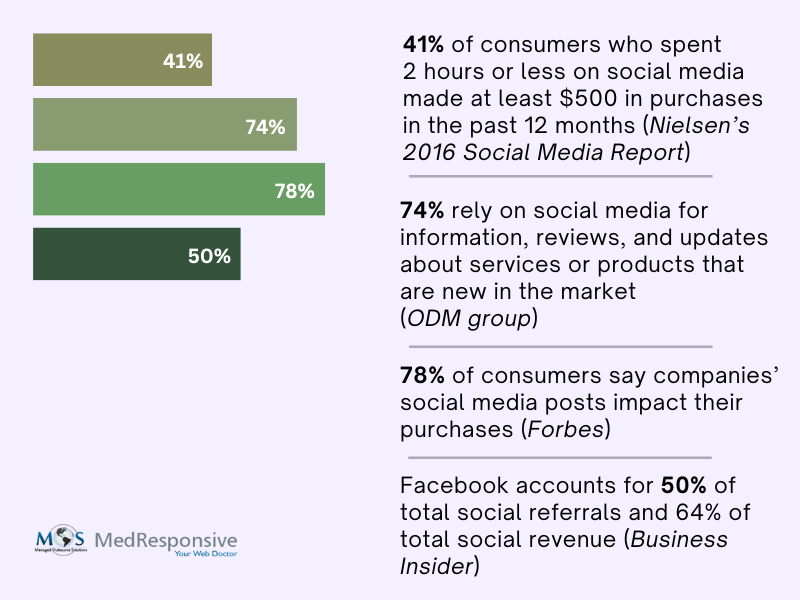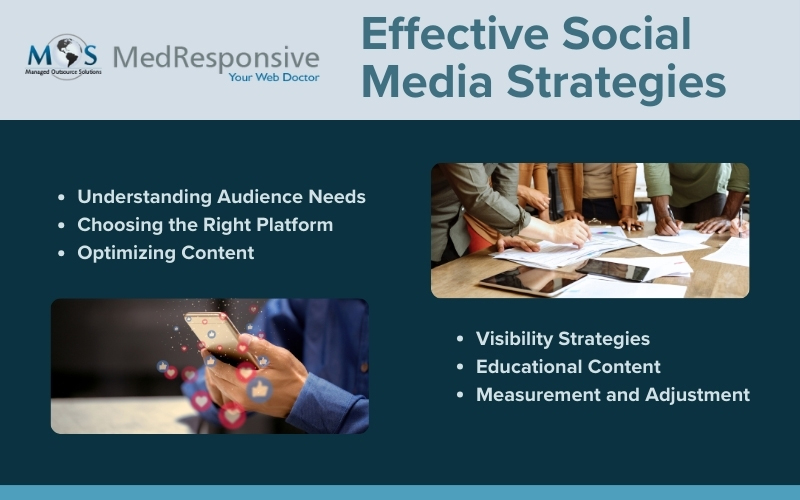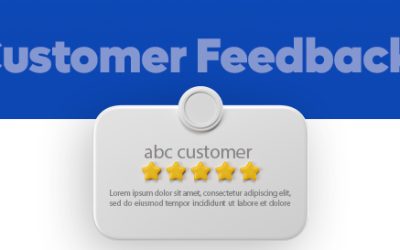With ever-increasing competition, hospitals, clinics, and pharmaceutical companies are focused on providing better service and faster responses using social media. Many people use social media to stay up to date on healthcare news and resources and the idea of following doctors on various social media platforms is becoming the norm. Social media is a cost-effective marketing tool that helps healthcare professionals connect with potential patients. A reliable digital marketing services company can help you optimize your social media profiles to build awareness, increase engagement rate and improve communication with your target audience.
According to a PharmaExec.com article in 2020, 73 percent of oncologists reported using social media as a clinical information source, with 28 percent using Twitter and 45 percent using LinkedIn. In addition, a study in PLOS ONE showed a 63 percent increase in page views for articles that were tweeted. Many pharmaceutical companies like Allergan, Bristol-Myers Squibb, AstraZeneca, Novartis, Pfizer, Eli Lilly & Company, Merck, etc. have social media accounts to facilitate scientific exchange.
Why Is Social Media Marketing Important?
Facebook, Twitter, LinkedIn, YouTube and Instagram are among the most popular social media platforms where you can easily reach out to your patients and healthcare customers. The following are some of the reasons why social media marketing is important.
- Helps to reach out to more people: There are many marketing mediums that can reach hundreds of people but no other resources have as much potential as social media to reach huge numbers of people and also target the exact audience. Being active on social media consistently helps to reach out to more people than sending direct emails, printing ads or commercials. Effective social media optimization will help target local audience.
- More affordable and effective: Many years ago, print media, newspapers and magazines were the most popular media for advertising to reach out to more people, and this was an expensive affair. But today, due to advancements in Internet and technology, businesses can advertise cost-effectively on social media. Facebook for instance, has improved its ad services a great deal in the past couple of years. Advertisement costs on Facebook are affordable and Facebook ads have become an effective way of reaching out to your target audience.
- Customers want medical businesses on social media: Now customers expect all businesses to have a social media presence. Customers will have an improved perception of the brand when they see positive reviews on social media and it is estimated that 93 percent of consumers are researching social media before making a purchasing decision.

- Better customer experience: Customers like it when their demands are given importance and social media is one platform that medical businesses can use to know what potential consumers want. This is because social media platforms allow customers to post their views, opinions and requirements directly.
- Better website traffic and visibility: Social media now send more people to websites than search engines. Anyone who has utilized healthcare digital marketing services to improve their SEO knows that more traffic and more hits on the website improve search rank. So, daily updates and daily ad campaigns would ensure that more people see your business online, which means more people will be interested in what you do. More people will be clicking through to your website. This generates improved search rank on Facebook and Google, and provides better visibility and greater potential to make more sales or attract potential patients.
Top Social Media Strategies to Drive More Traffic
Social media networks are hectic and to be noticeable, your communications such as posts, videos and tweets should attract attention. Healthcare businesses could find it more demanding to excel on social media platforms because they have the unique challenges of providing the right healthcare advice as well as establishing their brand.
Let us see how you can make your social media marketing efforts effective and rewarding.
- Give your audience what they want: Before posting any content on social media, it is vital to understand what your audience wants. Gather information from sources like medical science liaisons or surveys to enhance your understanding of educational needs and pain points. Understanding what your potential patient needs can help you identify whether social media is the right vehicle for driving traffic, and if so, which platform is best to meet your objectives. Healthcare professionals should realize different needs and pain points. You should also identify the ways they like to absorb content such as via short form multimedia summaries or long form content. The same content strategy may not work for all patients. So, knowing your audience will help you create different types of content that will satisfy all your target audience.
- Pick the right platform: Once you know what your audience wants, then the next step is choosing the right social media platform. Each social media channel has a mission, purpose, and unique audience. For instance, Instagram is a purely visual platform, and its use is entirely mobile while Facebook, Twitter and LinkedIn are purely for networking. If you have an Instagram account and are unable to tell stories or post images to educate your audience, then it is not the right channel for you. If you have a strong brand voice and wish to lean into the exchange aspect of Medical Affairs, then Twitter is the best place. If your objective is simply to attract the best talent to your organization by sharing relevant data and innovative solutions, choose LinkedIn. So, the key is to understand your objectives before choosing social media channels.
- Optimize your content for your audience: After identifying the right channel for your objectives, audience and content, the next step is to optimize your content. There are different types of content that can be posted on social media platforms and each type of content has different purposes, such as better online visibility, asking a question, or initiating a deeper discussion, and so on.
- Your presence on social media platforms should be regular and consistent. Posting content irregularly will not get you the attention you want and posting sporadically can even lead to loss of confidence on your account, which will eventually lead to a fall in followers. Posting too frequently is also not good as it can be boring.
- Choose the right time to post your content, depending on when you receive the most engagement.
- Use hashtags on appropriate social media channels. This will increase the visibility of your content and more people will be able to see it.
- Tag authors or other company handles for additional visibility on their network.
- Write effective social media post copy. Posts should have catchy headlines that generate curiosity among people.
- Choose the right keywords: Most people use search engines for queries. Study your audience’s search behavior, and create content with frequently used keywords.
- Share only your best content: Creating a good first impression online is important to get more clicks on your content. If someone has clicked on your content earlier and it did not meet their expectations, they will be less likely to click on it again.
- Include persuasive words that will encourage clicks: Research and understand specific terminology that, when used within calls-to-action, will increase click-through rates.
Follow these steps to optimize your social media presence, and drive awareness and content consumption:
- Make sure that your content is visible: Once your content for social media is ready, the next step is to improve its online visibility. There are both organic and paid methods to boost the visibility of the post.
- Use relevant hashtags that align with your content of interest including industry-specific or conference hashtags.
- Other company-owned assets like websites, e-signatures, virtual booths etc. should link to your social media.
- Make use of key opinion leaders and digital opinion leaders to help assist with channel engagement by finding out influencers to follow, identifying a range of messages or content types that may be relevant, creating digital profiles of high-priority influencers etc.
- Targeting: Twitter lets you develop customized audience lists that can be extended to similar audiences based on their activity on this platform. With LinkedIn, you can target relevant groups based on their profile descriptions.
- Ads: Twitter favors using quizzes and polls to improve engagement, promote organic posting, and grow your follower base.
Organic methods to increase visibility of your post include:
Paid Methods:
- Post educational and health-related updated content: Small medical businesses face competition from thought leaders and established healthcare entities, so it is important to focus on providing relevant and informative content that can capture more targeted audience. People are keen to look for health-related information on social media, so share content that your audience is looking for. This will increase the credibility of your medical business or brand. Have the right mix of text, graphics and videos to attract more users. Valuable and concise content with good titles will help in engaging with healthcare consumers.
- Measurement and adjustment: A social media marketing strategy is complete only if you include identification and selection of metrics that allow you to measure progress toward your goals and objectives. For success with your medical social media campaign, you should aim to improve the visibility of your content, align your content with your values and how audiences want to receive the information, and finally, engage in meaningful scientific dialogue. The dialogue rate can be measured by dividing the number of replies by the number of posts. Engaging in a meaningful dialogue requires a deep understanding of your audience and what they value. Dialogue rate helps to measure the conversation and provides insights on whether you are meeting their needs.
Real-life Examples
A recent article in mmm-online.com highlighted how healthcare businesses are using Instagram. Some of the companies mentioned are as follows.
- Medtronic, the medical device company that develops insulin pumps for diabetes patients has more than 16,000 followers in Instagram. Wendy Blackburn, EVP of Intouch Solutions says that Instagram is a good platform for diabetes marketing as it always has been a disease category active on social media and has a broad range of patients.
- In honour of the late Leonard Nimoy who played Mr. Spock in “Star Trek,” Philips Healthcare and the COPD (Chronic Obstructive Pulmonary Disease) Foundation launched #BreatheBoldly campaign to raise awareness about COPD in November. Celebrities like Whoopi Goldberg and reality TV stars like Melissa Gorga posted videos on their Facebook page and Instagram pages to show the challenges of people suffering from the condition.
- Pfizer has a number of trolls on its Instagram page, but does not delete those. Deleting comments even if they are negative may send the wrong message to prospective customers. It is important for brands to understand that there will always be a faction of haters and trolls.
- The Instagram page of Novartis’ contains images and videos that show their corporate history and important events as well as their social and humanitarian efforts. They also represent this drugmaker’s attention to education and training.
No matter how well your website is social media optimized, there may still be pitfalls in your social media marketing strategy:
The Centers for Disease Control and Prevention (CDC) says that social media and other advanced communication technologies are beneficial for healthcare providers in the following ways:
Boost your healthcare brand in the digital era with our social media management services.
Social media can help raise awareness among the public about new and emerging health issues. It can be also used to direct followers to credible sources of information. Posting relevant content regularly will help educate your audience and drive traffic to your website. A reliable social media management services provider can help optimize your content and post content regularly on the right social media channels to improve the visibility of your website and attract targeted traffic.





